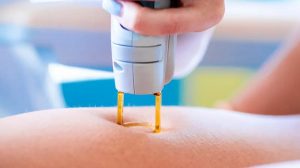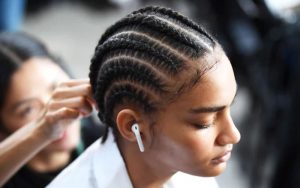
Hard Water Hair Damage: How to Treat to Keep Your Hair Healthy?
Hard water is water that is high in dissolved minerals, particularly those such as calcium and magnesium. Shampoo, conditioner, and soap effectiveness is decreased and usage rises as a result of hard water minerals’ inability to bind to these products.
Hard water minerals that dissolve over time deposit a film on the hair that keeps moisture from penetrating the hair after numerous washings. As a result, your hair will be dry, lifeless, tangly, and faded in color. Dandruff and itching on the scalp can result from buildup on the scalp brought on by hard water.
The water people use for bathing and washing has an effect on their skin and hair, but many people are unaware of this. Although it is safe to drink hard water, it can damage your skin and hair and leave scale deposits on your home appliances.
Fortunately, you can take some steps to mitigate these effects. Learn more about these hair-saving methods by reading on.
How Does Hard Water Affect Hair Health?
Minerals can be found in hard water. Due to the build-up that can result from this high mineral content, the scalp may become inflamed or itchy over time. Hard water can cause hair loss if it is not treated.
Reduced Hair Strength
A study involving 70 men found that hair treated with hard water lost strength. If this result is short-term ignored, it may eventually cause more hair breakage and hair loss.
Difficulty in Hair Coloring Or Styling
Strong hair is necessary for all hair treatments and styling. It gets harder to color or style hair the way you want when it loses strength.
Stress on hair strands increases as a result of the stylist’s increased work load. Stress can cause more harm as it rises.
Scalp Damage and Eventual Hair Loss
Hard water can cause significant hair damage in people who already have psoriasis or eczema. Hard water causes severe scalp damage that, in some people, results in a severe hair loss problem.
All hair types suffer damage from hard water. However, due to the nature of some hair types, they are more susceptible to hair damage.
For example, hard water can cause more harm to fine hair. This is because buildup is more likely to occur on fine hair. The build-up gets worse due to hard water, which also contributes to it.
Naturally, curly hair is dry. Hard water washing exacerbates the dryness and multiplies the harm to the hair.
Repair Hair That Has Been Damaged from Hard Water
These methods ought to work well if you’re trying to revive damaged hair.
Install a Water Softener Shower Head
Hard water’s polar opposite is soft water. Although it has some minerals, the amount is much lower than in hard water.
This implies that it’s more hygienic and healthy. The best way to purify water is to install a water softener in your home, but this can be quite expensive.
Investing in a shower head with a water softener is a more affordable alternative.
“These [shower heads] have cartridges that are filled with carbon to remove the minerals before the water touches the hair,” says Hairdresser Martino Cartier is the proprietor of the Martino Cartier Salon.
Use a Clarifying Shampoo
Maria Elizabeth, owner of Salon deZen, claims that a clarifying shampoo can restore hair that has been harmed by hard water.
“The best way to restore the hair to its former glory is to remove the mineral build up,” Elizabeth says.
Use it at least once a week and choose one “that focuses on this issue and not just removal of styling product buildup,” Elizabeth explains.
Apply a Hair Mask
Use a nourishing hair mask at least twice per week to rehydrate and brighten your locks.
“Make sure you’re massaging well into the scalp and working it through to the tips of your hair,” Lin advises. “Masks should be left on for at least five minutes.”
A leave-in conditioner can also be used to soften the hair. To pick one with a low pH, Elizabeth advises. “By sealing in moisture and keeping minerals out, this will aid in helping the cuticles to close once more.”
Try a Citrus and Vinegar Rinse
You must begin at the scalp to reverse the effects of hard water.
“You’ll find that a mixture of water, vinegar, and a citrus juice of some sort is a good natural solution for treatment,” Lin says.
Given that it lowers the pH of the hair and contains vitamins B and C that are good for healthy hair, apple cider vinegar is a good alternative.

How to Tell If Hard Water Has Damaged Your Natural Hair?
Hard water may not be helping the situation if you find that your detangling efforts on wash days actually make things worse (been there). Carthy explains that symptoms of hard water damage include increased breakage, thinning of your hair, a dry scalp, and “an increase in the number of knots whilst shampooing and conditioning hair.”
“Hard water can make the curls feel crunchy and dry, similar to how it feels to let them air-dry after swimming in the ocean. That crispy feeling is the mineral residue clinging onto the hair after the water evaporates,” continues Ozener.
Both Ozener and Carthy emphasize that the porosity type of your hair (more on that here) can affect the outcomes of using hard water. For high porosity hair, “hard water erodes the hair’s elasticity, lifting the cuticle, and leading to buildup and limp hair. Carthy adds: “In contrast to someone with thirstier high porosity hair, if you have low porosity hair, you’ll experience build-up symptoms like an itchy scalp and excessively oily-feeling hair.”
Do We Need to Invest in a Shower Filter to Protect Our Natural Hair from Hard Water?
As many people are aware, Black women are the biggest consumers of hair products in both the UK and the US, so the idea of having to buy a device more expensive than my most expensive conditioner (roughly £60) does make me want to tighten my purse strings, but it might be worth it. On social media, there are a lot of wacky creators who wax poetic about shower filters. In a video shared with TikTok, creator Marla Warna said that in just one week of using a shower filter, her curls are “much nicer” as well as her skin. Another claimed that she “noticed an immediate difference after getting a shower filter” after experiencing hair loss and breakage.
“Most customers notice that their curls feel softer and bouncier and a decreased need to wash less often as a shower filter helps reduce soap scum caused by minerals that linger on the hair and scalp,” explains Ozener. “For hair that has been bleached or colored, many people notice an improvement in the treatment’s prolonging effects (i.e. the colour doesn’t fade as fast)and less dryness on the scalp.”
The experts I spoke with advised using a water filter to remove unwanted minerals as well as shampoos and clarifying treatments that won’t deplete the scalp and hair of their natural moisture.
Josie Gould, a hair maintenance expert currently in-house at Foxy Locks, a designer hair extension brand, explained to Unbothered: “To ensure that the conditioner or hair treatments can effectively penetrate the hair, use a good clarifying shampoo to remove any mineral buildups. Your hair will retain the moisture it needs to avoid breaking and brittleness if you use a high-quality hair mask or treatment.”
Black haircare will always be plagued by the fear of breakage, so in the thoughtful search for hydrated hair, it might be worthwhile going back to the beginning and addressing the root of the problem.
Frequently Asked Questions
Can Hard Water Cause Hair Loss?
Yes, in extreme cases, hard water can irritate the scalp and cause hair loss.
Is Hard Water Bad for Your Hair?
More minerals are present in hard water than in soft water, which can have undesirable effects like drying out materials and causing breakage and damage.
How Do You Prevent Hard Water Hair Damage?
Install a water softener. Avoiding all contact with hard water is the best form of prevention. Other remedies, such as clarifying shampoos, hair masks, and rinses, might also lessen the harm caused by hard water.
How Do You Reverse Hard Water Effects on Hair?
Use soft water to wash your hair. Hard water buildup can be removed from your hair by using soft water when you wash it. Use of clarifying shampoo, hair masks, or rinses might also be beneficial to speed up the process.
Does Hard Water Make Your Hair Fall Out?
A salt is created when shampoo and the minerals in hard water combine, leaving a residue on your hair and scalp. Hair is less elastic overall due to mineral buildup, which increases its susceptibility to breakage. If breakage goes unchecked, it can lead to the appearance of thinning hair. In addition to weighing your hair down and making it look lifeless and flat, an accumulation of extra minerals can also make your strands feel brittle and dry.
Not only that, but hard water buildup on the scalp may obstruct the roots and prevent the growth of new hair. Dry, itchy scalp with dandruff flakes can result from calcium deposits on the scalp.
Does Hard Water Cause Grey Hair?
Many people hold this basic misunderstanding. If your hair has already been dyed, hard water cannot discolor it. Hard water’s calcium, magnesium, and iron content is what makes hair color fade more quickly and become duller. Iron in water specifically acts as an oxidizer, creating highlighted tones in light blonde hair and coppery red highlights in dark hair. The more times you wash your hair in hard water, the more orange your dye will become.
Bottom Line
The best solution to all the problems caused by hard water is to install a whole-house water softening system. You can prevent dull, limp hair forever by installing a softener, which removes hardness minerals from the water before it even reaches your showerhead.
Finding out your water’s hardness level is the first step to getting you on the path to softer, healthier hair. You’ll be able to choose the most appropriate water softening option once you’ve tested your water and determined your hardness number.
Read about Is Salt Water Good For Your Hair?






